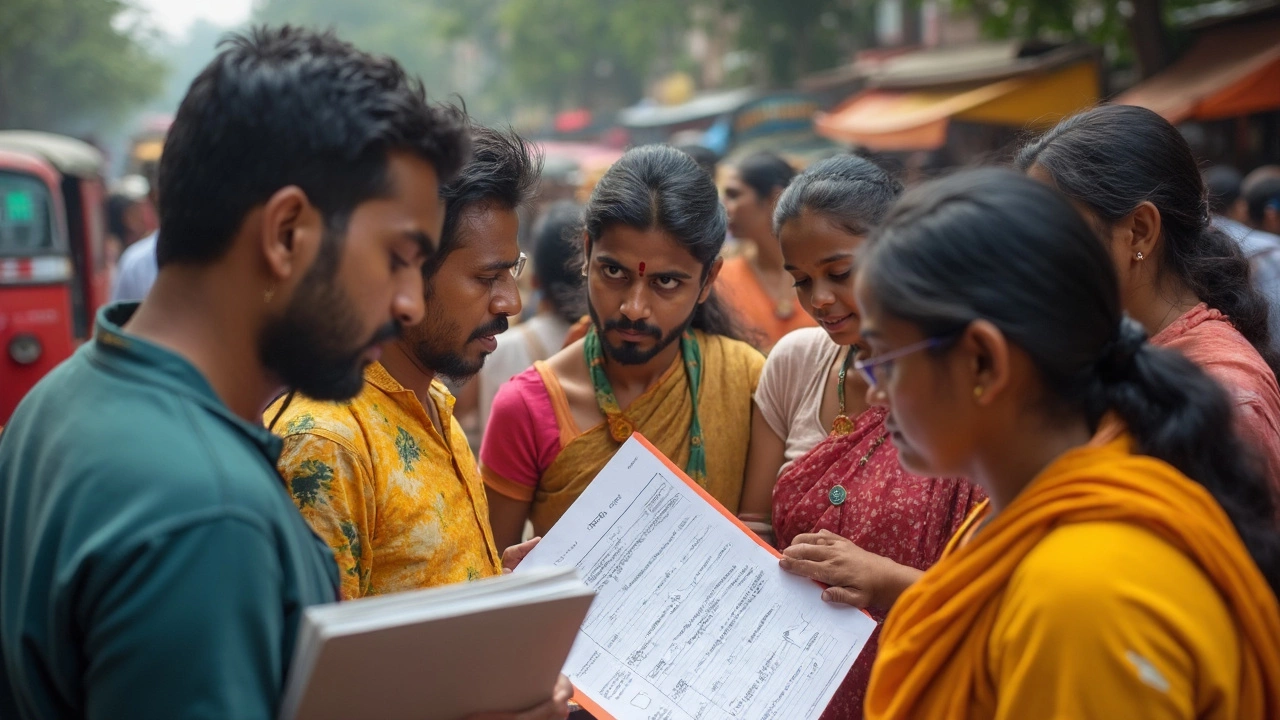Ever thought about standing in court alone, no lawyer by your side, and actually winning? Sounds like something you’d see in a movie, right? But here’s the kicker—some regular people have pulled this off in real life. It doesn’t happen every day, but yes, a handful of people have acted as their own criminal lawyer and walked out with a win.
Let’s be straight: courts don’t make this easy. If you’re up against a criminal charge, the government brings their toughest prosecutors. They're trained, they know the laws inside out, and they’ve got all the resources. Still, some folks, whether because of money issues, mistrust, or just stubbornness, decide they’re going to take the risk and go ‘pro se’—that means representing themselves without a lawyer. And every so often, things line up in their favor.
Winning by yourself takes more than determination. You need to know court procedures, how to question witnesses, what kinds of evidence count, and how to argue your side without accidentally making things worse. Some who’ve succeeded spent months, even years, studying law books, watching court hearings, and preparing every possible detail. Others just knew their case inside and out—and caught a break when the prosecutor messed up or didn’t have enough proof.
- Real Stories of Pro Se Victories
- Why People Represent Themselves
- Risks and Pitfalls of Going Solo
- Pro Tips for DIY Legal Defense
- When You Really Need a Criminal Lawyer
Real Stories of Pro Se Victories
People sometimes ask if anyone’s actually managed to be their own lawyer and win, especially in criminal cases. Surprisingly, the answer is yes—it’s rare, but it happens. The best known case is probably that of Colin Ferguson, who, in 1993, chose to represent himself during his trial for the Long Island Rail Road shooting. While some might remember this case for the drama, Ferguson did cross-examine witnesses and argued motions himself. But here’s where reality hits—he was convicted in the end. The takeaway? Not all pro se efforts are wins, but some definitely are, if you look at lesser-known stories.
For example, look at Herbert MacGregor, a Florida man who fought a misdemeanor resisting arrest charge. He couldn’t afford a defense lawyer, so he decided to go solo. He dug into the books at the local law library, learned court procedures, and managed to get the charges dropped by spotting problems with the prosecution’s evidence and pointing them out to the judge. It’s not headline news, but it worked.
Another interesting one is the case of Alton Logan. He represented himself in a 2015 Illinois court, facing charges of disorderly conduct. He cross-examined witnesses, stuck to the facts, and checked every procedure. The jury found him not guilty. Logan said he knew his case and just focused on the holes in the prosecution’s story.
This kind of win is rare, but the National Center for State Courts found that roughly 14% of felony defendants try to represent themselves at some point, though most give up and get a lawyer before trial. Fewer than 1% actually take their whole trial “pro se” from start to finish and win. Here’s a quick table to break down the numbers:
| Year | Self-Represented Defendants (%) | Pro Se Trial Wins (%) |
|---|---|---|
| 2018 | 14 | ~1 |
| 2021 | 12 | <1 |
So, it’s possible. But if you’re thinking of becoming your own criminal lawyer, understand you’re up against long odds. The DIY wins tend to happen when the defendant is ultra-prepared, the evidence is thin, or the prosecutor drops the ball. Most people who try, though, run into major problems and end up finding out the hard way why lawyers go to law school for years.
Why People Represent Themselves
There’s no single reason people skip the lawyer and try to handle their own criminal case. Sometimes, it’s about cash—legal fees pile up fast, and public defenders are stretched thin. For minor charges, courts might not even give you a free lawyer, so some just bite the bullet and do it alone.
But it’s more than just money problems. Some folks genuinely don’t trust lawyers. They think no one else will fight for them like they can fight for themselves. A handful figure their case is simple enough, or maybe they’ve had a bad experience with an attorney before. That personal drive, mixed with stubborn confidence, pushes them to go all-in as their own advocate.
Believe it or not, a few even want to make a statement. They want to speak their truth, face the system head-on, or challenge the law itself. Some high-profile cases—even murder trials—have had defendants go pro se and argue for themselves in front of a jury. Daryl Brooks, for example, represented himself in his 2022 trial in Wisconsin. Though not every story ends in a win, it shows just how motivated some people are to take the wheel.
Here’s a quick look at the top reasons folks go solo in court:
- They can’t afford a lawyer or don’t qualify for a public defender
- They think their case is simple or the evidence is weak
- They had a bad run with past lawyers
- They want full control over their defense and strategy
- They want to send a message or challenge the system
Check out this quick table pulled from a 2023 survey by the National Center for State Courts showing why people represented themselves in criminal and traffic cases:
| Reason | Percent of Cases (%) |
|---|---|
| Couldn’t Afford Lawyer | 39 |
| Didn’t Trust Lawyers | 17 |
| Thought Case Was Simple | 25 |
| Previous Bad Experience | 10 |
| Wanted to Challenge Law/System | 9 |
If you’re thinking about going it alone, you’re not the only one. The main thing is to be clear about why you’re doing it and what you’re up against. Winning as your own represent yourself lawyer is possible—but it’s a tough road, and you’ll need all the facts before jumping in.

Risks and Pitfalls of Going Solo
If you’re thinking about ditching a lawyer and handling your case alone, you need to know what you’re up against. Courts are built on rules, and they don't bend those rules just because you’re not a professional. Even a simple mistake can cost you your freedom, your money, or both. Here are some common traps people fall into when they take on a criminal lawyer’s job by themselves.
- Missing or Misunderstanding Deadlines: Courts run on tight schedules. Miss one deadline, and your case could be tossed, or you could lose the chance to use key evidence.
- Not Knowing the Rules of Evidence: There’s a specific way to get evidence in front of a judge or jury. If you don’t follow these rules, what you want to say or show might get ignored.
- Going Up Against Professional Prosecutors: The other side knows every trick in the book. They can spot a rookie mistake from a mile away, and they’ll use it to win.
- Letting Emotions Take Over: It’s your life, so it gets personal fast. But letting anger or frustration take over can trip you up in front of the judge or jury.
- Lack of Strategy: It’s not just about telling your side—it’s about knowing what to ask, what to push back on, and when to stay quiet. Most people don’t have a game plan, and that can sink the whole case.
Take a look at these numbers showing how rare it is for people going solo in criminal court to come out on top:
| Type of Case | Pro Se Success Rate | Cases with Lawyer Success Rate |
|---|---|---|
| Felony Charges | Less than 1% | About 15-20% |
| Misdemeanor Charges | Roughly 3% | About 25% |
If you’re wondering if a judge or jury will give you special treatment for being “just a regular person,” think again. Judges are there to keep things moving; they won’t teach you the ropes. And, harsh truth: juries might actually trust you less if you don’t bring in a professional. Self-represented people often get harsher outcomes.
If you mess up today, you can’t always fix it later on appeal. There's rarely a “do-over.” If you’re facing jail, huge fines, or anything serious, you need to be crystal clear why you’re skipping a lawyer before jumping in alone.
Pro Tips for DIY Legal Defense
No sugarcoating here—representing yourself in a criminal case is tough. Most judges and lawyers will tell you it’s risky, but if you’re set on going solo, you’ve got to play it smart. Here’s some real-world advice that’s actually helped people who took on their own defense:
- Know the Law Cold: It’s not enough to just "think" you’re right. Look up the laws that apply to your charge. Read the actual statutes. Dig into cases that are similar to yours. Whether you use online sites, law library books, or public defender resources, get the official wording. Prosecutors love to catch people slipping up here.
- Courtroom Procedures Matter: Even a small mistake can hurt you. Learn the basics—how to make objections, how to submit evidence, when to speak, even how to dress. There are free guides online from your state court system explaining step-by-step what to expect.
- Be Ready for the Worst: The prosecutor knows you’re new. If you don’t prepare, you’ll get railroaded on cross-exams and procedures. Practice your arguments out loud. Some people actually record themselves or run through mock trials with a friend.
- Request Discovery Early: Under U.S. law, you can often ask to see the evidence the prosecution has against you. File for discovery as soon as possible so you don’t get blindsided on court day.
- Witnesses are Key: Don’t just rely on your own version of events. Figure out who can back up your story and how to legally get them into court. Some self-represented winners called surprise witnesses or poked holes in the other side's testimony.
- Organize Everything: Judges don’t have patience for chaos. Keep your paperwork, notes, and timeline tight. Show up early, and act like you know what you’re doing. Confidence isn’t a substitute for knowledge, but it helps you avoid looking like an easy target.
And here’s a quick reality check: even if you’re on top of your game, most people who pull off a pro se defense either have an unusually simple case or catch a big mistake by the prosecutor. So keep your eyes peeled for prosecutorial errors—incorrect paperwork, missing key evidence, or violation of your rights. If you catch something major, ask the judge about it right away.
Bottom line: going without a lawyer means more work, more risk, and a lot of stress. But if you’re determined, go in prepared, stay organized, and never underestimate the details.

When You Really Need a Criminal Lawyer
Sure, some people have pulled off a court win on their own, but that’s the exception—not the rule. If you’re facing serious charges or anything beyond a simple ticket, skipping a criminal lawyer can land you in big trouble. The stakes get way higher when jail time, steep fines, or a permanent record are on the line.
Let’s look at when you absolutely don’t want to go solo:
- Felony charges: These bring major consequences. If you get it wrong, you could be looking at years behind bars.
- Complicated cases: Multiple charges, forensic evidence, or lots of paperwork are tough to juggle without experience.
- You don’t understand the law: Legal rules are full of traps. Miss a deadline or file the wrong paperwork, you can sink your case.
- Plea deals on the table: Prosecutors might offer a plea, but unless you know what that deal really means, you could agree to something much worse than going to trial.
Think the system will cut you some slack for being a rookie? It won’t. Judges expect you to follow the same rules as a lawyer. They can’t walk you through it, and the prosecutor definitely isn’t on your side.
Don’t just take my word for it. Check out this quick breakdown of conviction and acquittal rates from the Bureau of Justice Statistics. People with lawyers clearly stack the odds better:
| Defense Type | Felony Conviction Rate | Acquittal Rate |
|---|---|---|
| Represented by Lawyer | 68% | 7% |
| Self-Represented (Pro Se) | 85% | 3% |
Bottom line: Legal know-how, experience with the system, and just having someone to spot mistakes makes a huge difference. If money is tight, check if you qualify for a public defender. They might not be flashy, but having an expert on your side gives you a fighting chance.
